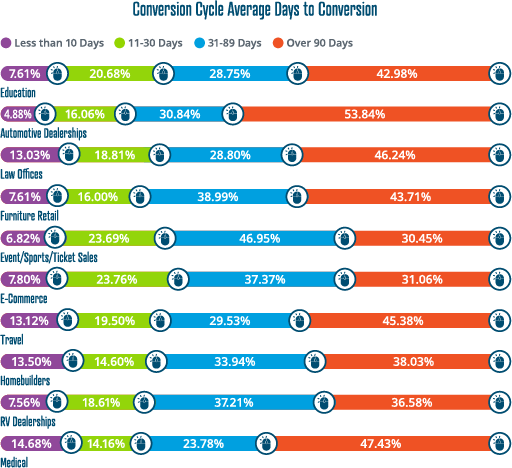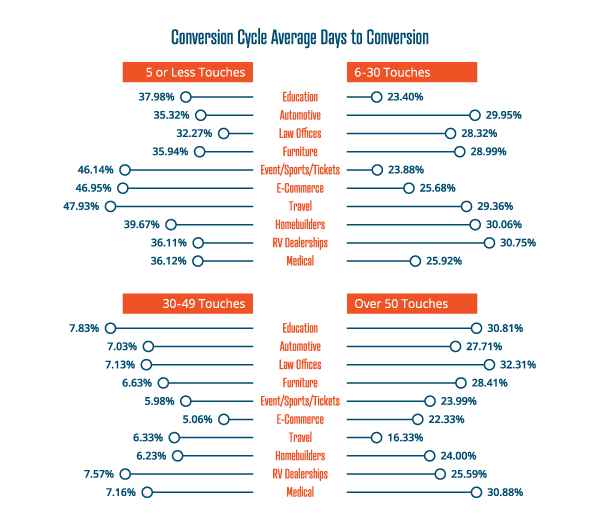TEMPE, AZ / ACCESSWIRE / August 19, 2020 / Let's talk data. The real nitty-gritty digital data. I mean actually understanding it. In this day and age every digital marketer, digital vendor or network, and so-called guru claims to have all the data in the world. Marketers see the words "data," "collecting data points," "optimization," and "smart marketing" plastered everywhere they look. The word data is so embedded in the digital landscape that no one really knows what they want or what they're looking for, they just know they need to ask for it.
This type of thing is normal in the digital marketing industry. Buzz is built around a certain ideal that digital marketers should be paying attention to for a short period, and then before you know it, it's on to the next. A few years ago it was all about website placements, brand safety, and ad validation via third party ad servers, but that has fallen to the wayside with the ever-growing request for data, data, data. So how do we understand and use this data so as not to make it an empty talking point that becomes a fad, but instead actually put the data to good use?
A well-known digital marketing platform that continues to push the space along has collected millions of data points for thousands of clients in different verticals to pull together a timeline in order to better understand the different verticals and the purchase/conversion cycle for each of them. Let's take a look:


Before we dive into the data, let's first define a few things.
- A conversion for these verticals is either a purchase, form submission, or some type of website indication that the user engaged to do business.
- The conversion cycle timeline starts from the point in which the user was first engaged via a touchpoint.
- A touchpoint is either an ad impression (view) or an ad click from the digital marketing vendor (in this case, Genius Monkey).
What can we conclude from these results? And more importantly, how can we use this data moving forward?
-
Conclusion 1: Events / Sports / Ticket Sales, E commerce, and Travel all require fewer touchpoints to get users to convert. Why do we think this is? Immediate gratification. Marketing is about speaking to people's emotions, and what speaks to emotion better than the satisfaction of buying yourself something to do for the weekend, some new clothes to wear, or a trip to the Bahamas next month?! I know you don't have to serve me a hundred ads for a good vacation deal to get me to buy it, just get me on the plane already!
-
How can we use this? If we know a majority of your users are going to make a decision in less than 5 touch points, make sure you and not your competitor make the best first impression with the best offer. Pull at those heart strings and make them need your product or service with an offer they can't refuse. In other words, the creative you're using matters!
-

-
Conclusion 2: More than 50% of auto purchases take more than 90 days to make a decision. This shouldn't come as a surprise as buying a car is a large financial and emotional decision, especially with the vast amount of options today. Though the buying cycle should come as no surprise to auto marketers, they are still all so focused on the right now. If dollars out to marketing doesn't make immediate dollars in for a campaign that month, they are stricken by surprise. Why is this when the data we have should clearly tell us the opposite?
-
How can we use this? Market for the future, not just for right now. For example, if I know I'm going to have a surplus of F-150's to sell off my lot in 5 months from now, I should start marketing those now. Not the month I get the extra units. Why? Quite simply because it will take my buyer over 90 days to do their research and make a decision on what vehicle they want to purchase. If I wait until that inventory hits my lot to advertise for them, when I know I'll need to sell them right away, I'll already be behind the curve and won't be able to really affect sales with today's marketing efforts for some time.
-

-
Conclusion 3: Home builders see the second-highest amount of conversions in less than 10 days out of any industry…. Wait, what?!? That can't be right. A home is the highest monetary purchase you can make! Why would people be so quick to pull the trigger? Well, they aren't and this is what I mean by really understanding the data. What we found at Genius Monkey is that home buyers, specifically those buying new homes from builders, get excited quickly, but purchase slowly. This means they check out new home communities and submit form fills quickly. However, this doesn't mean they purchased right away. When Genius Monkey did a comparison of the average form fill date to home purchase date there was a large timeline gap. We then looked at the average number of other home builders being researched and visited in that time and it was substantial.
-
How can we use this? You know your audience is excited about your product because they're sending you clear interest in the way of immediately submitting form fills. Yet they aren't immediately purchasing, and are most-likely being exposed to other brands… Sounds like you need to stay in front of your audience and re-engage them with a different offer to keep things fresh and beat out your competitors. Welcome remarketing. Home builders have found no better conversion method than an effective remarketing campaign.
-

There are tons of different conclusions you can draw from this data, as well as other data points Genius Monkey is pulling for industry and/or vertical standards. If you or one of your clients are advertising for one of these verticals, see how you stack up against the average. If you're quite a bit off from the average, circle back to the beginning and make sure you're looking at clean data, and doing so from the right perspective. And if you're still off after that, take a look at the strategy, mediums, and content you're putting out and decide what is and isn't working. However, when pulling your own data and making these comparisons, here are a few things to remember:
Is the data clean?
Do I use Dial soap, Dove, or Irish Spring to clean my data? Well, it doesn't quite work that way. When recently interviewed, Genius Monkey's Director of Operations, Travis Champ, describes clean data as, "data that has been well-thought-out and analyzed before the collection ever occurred. The way data is being collected needs to be consistent. When reporting on the data, you need to keep in mind any outside factors that may have caused statistical outliers and scrub those out so as not to throw off the greater medians."
Does the data make sense?
We as marketers and data analysts can get so engrossed in the numbers that we get to a conclusion and just go with it, without stopping to really think about what the number represents. For example, Tom just pulled 20 reports, compiled 6 charts, and made 5 graphs to find that the average buy cycle for one client was 15 days, the second client was 141 days, and the third client was 0 days. Tom reported that the average conversion cycle was 52 days and moved on. However, had Tom taken a step back and realized a 0-day conversion cycle wasn't possible and that the root issue was that the conversion goal wasn't tracking properly, his data wouldn't have been skewed. Always take a step back and make sure the data makes sense.
What is the data saying? And where does it lead?
What does my data represent and what story does it actually tell? If you report that 36.12% of Medical conversions happen in less than 10 days, what does that mean to you and your business? How can you base future decisions off of this? These are the questions you should ask yourself when reviewing data for future optimization. It's not enough just to collect piles of numbers and attributions. The real power of data lies in the proper analysis of such figures, and their application to your future business strategies.
So when it comes to data you can actually use, be sure to ask yourself a series of relevant questions before arriving at any solid conclusions. Starting with: What's my data telling me? Because trust me. It's saying a lot more than you think.
---
ABOUT GENIUS MONKEY
Genius Monkey is a digital advertising technology firm with an advanced full-service marketing platform designed for today's real-time programmatic advertising and tracking needs. Our media and device agnostic systems are only the beginning of our performance success. Our advanced marketing technology and services make it possible for advertisers to reach millions of targeted customers with ease and convenience at a fraction of the cost of traditional marketing. To learn more about how Genius Monkey can help your brand evolve, visit geniusmonkey.com.
CONTACT
Travis Champ
Director of Operations
Genius Monkey
[email protected]
SOURCE: Genius Monkey




